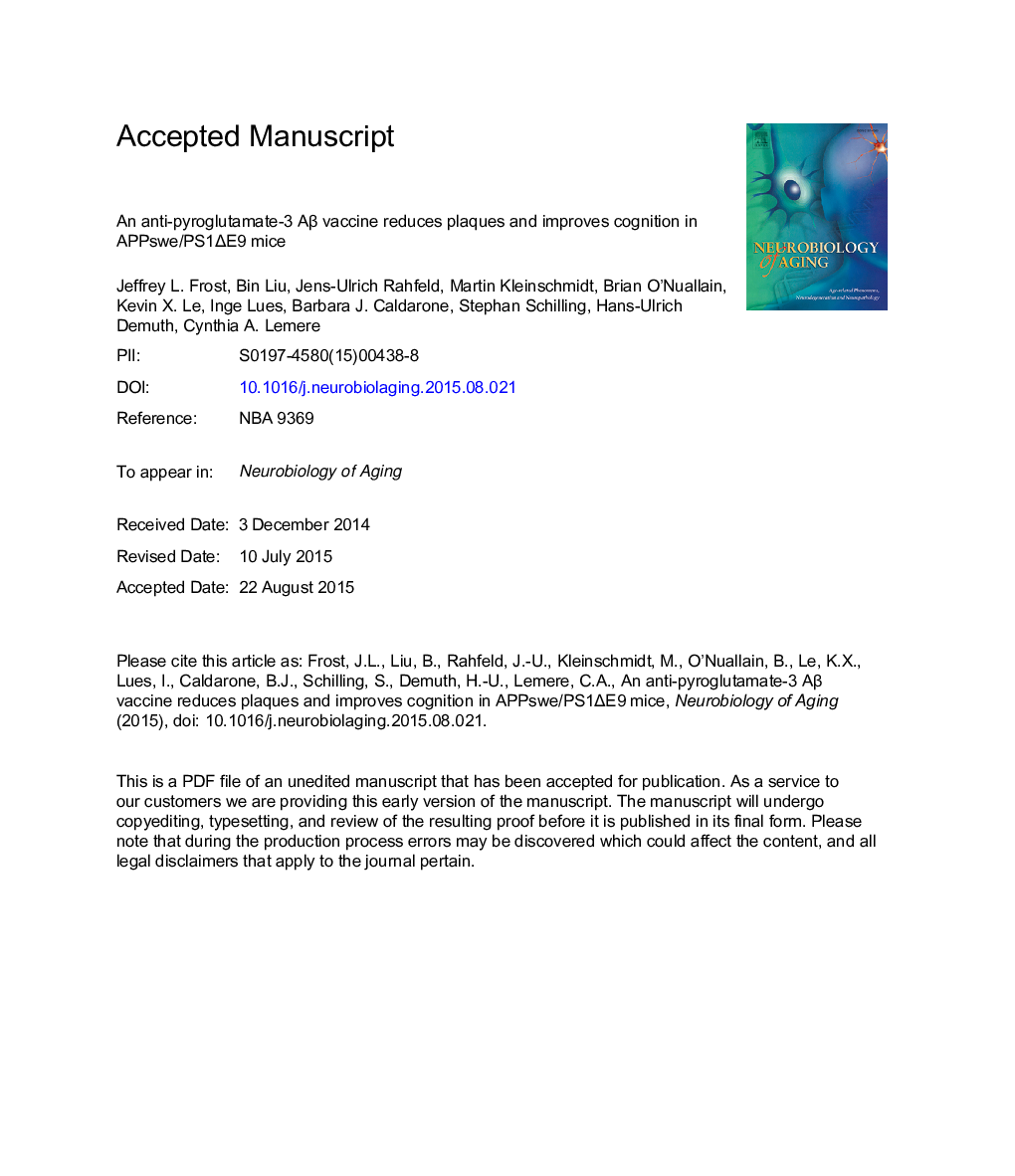| Article ID | Journal | Published Year | Pages | File Type |
|---|---|---|---|---|
| 6803756 | Neurobiology of Aging | 2015 | 57 Pages |
Abstract
Pyroglutamate-3 amyloid-beta (pGlu-3 Aβ) is an N-terminally truncated Aβ isoform likely playing a decisive role in Alzheimer's disease pathogenesis. Here, we describe a prophylactic passive immunization study in APPswe/PS1ÎE9 mice using a novel pGlu-3 Aβ immunoglobulin G1 (IgG1) monoclonal antibody, 07/1 (150 and 500 μg, intraperitoneal, weekly) and compare its efficacy with a general Aβ IgG1 monoclonal antibody, 3A1 (200 μg, intraperitoneal, weekly) as a positive control. After 28 weeks of treatment, plaque burden was reduced and cognitive performance of 07/1-immunized Tg mice, especially at the higher dose, was normalized to wild-type levels in 2 hippocampal-dependent tests and partially spared compared with phosphate-buffered saline-treated Tg mice. Mice that received 3A1 had reduced plaque burden but showed no cognitive benefit. In contrast with 3A1, treatment with 07/1 did not increase the concentration of Aβ in plasma, suggesting different modes of Aβ plaque clearance. In conclusion, early selective targeting of pGlu-3 Aβ by immunotherapy may be effective in lowering cerebral Aβ plaque burden and preventing cognitive decline in the clinical setting. Targeting this pathologically modified form of Aβ thereby is unlikely to interfere with potential physiologic function(s) of Aβ that have been proposed.
Keywords
Related Topics
Life Sciences
Biochemistry, Genetics and Molecular Biology
Ageing
Authors
Jeffrey L. Frost, Bin Liu, Jens-Ulrich Rahfeld, Martin Kleinschmidt, Brian O'Nuallain, Kevin X. Le, Inge Lues, Barbara J. Caldarone, Stephan Schilling, Hans-Ulrich Demuth, Cynthia A. Lemere,
